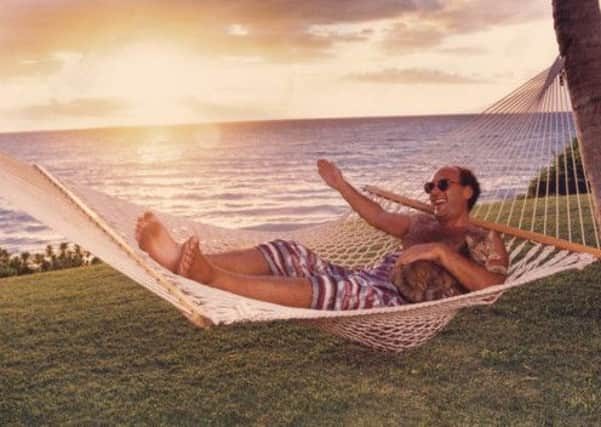Warm portrait of kind and caring friend to the stars


Chances are you won’t have heard of Shep Gordon.
Mike Myers, the comedian who spent two years documenting his life for the documentary Supermensch, calls him “a very modest man. He’s not comfortable in the spotlight but he is very comfortable at the edge of the frame, being in service to others.”
Yet an astonishingly varied ensemble of stars lined up to laud him in Supermensch. They included Michael Douglas, Sylvester Stallone, Willie Nelson, Tom Arnold, Myers himself and Alice Cooper, whose career Gordon has guided since 1965.
Advertisement
Hide AdAdvertisement
Hide AdAnd these were genuine accolades from people who have been on the receiving end of his largesse. He describes himself as a compassionate businessman. Myers prefers “ethical hedonist”.
It’s the anecdotes that have helped make Gordon a legend. He fell into showbiz after a chance meeting with Jimi Hendrix, Janis Joplin and Jim Morrison. Later he would briefly manage Pink Floyd after the departure of Syd Barrett.
Then there is Alice Cooper. It was Gordon who saw more in Cooper than the painted Goth so derided by Press and public. And it was Gordon who added a live chicken to a packed stage show. When the bird was later torn to pieces by the audience the pictures were seen all over America. Suddenly Cooper had arrived.
Gordon recalls it as both “a complete accident” and, in terms of any one thing with which he was involved, “the biggest career changer”.
Advertisement
Hide AdAdvertisement
Hide Ad“It wasn’t calculated [but it] put Alice on the map. That was his defining moment. He got taken in a strange way as an artist, not as a lunatic. Everyone started to compare him to Salvador Dali; he became the Dali of rock.”
Myers first met his hero during the shooting of Wayne’s World. They’ve been pals ever since. But it still took him ten years to persuade Gordon to submit to having his life put on film. So what prompted a change of heart?
“It was a convergence of two things,” says Gordon. “One was that I was feeling a little sorry for myself. I wasn’t getting invited to celebrity golf tournaments. And then I ended up in the hospital with some medical stuff. He called up and said ‘Now are you ready to do it? ‘ and I said ‘I sure am! Let’s go!’” What Gordon expected to be like a home movie turned out to be warm and loving portrait that played Toronto Film Festival and was picked up for distribution by the Weinsteins. The response has amazed him. ‘I’m very proud of it,” he says. “Really humbling.”
It’s the stories that make Shep Gordon fascinating. But it’s his humanitarian side that impresses most. In the 1970s he broke the Chitlin’ circuit – the venues played by black musicians who often didn’t get paid by the owners – and booked black singer Teddy Prendergrass into a series of predominantly white concerts.
Advertisement
Hide AdAdvertisement
Hide Ad“In terms of the things that I’ve done that have really impacted people’s lives in a positive way then helping to break the Chitlin’ circuit. I am really proud of that.
“It came at a heavy cost. I had kids in my office being pistol-whipped. It wasn’t a friendly time. It was difficult.
“We live in a ‘me, me, me’ society. Maybe I don’t have huge self worth or something so I don’t think about me as much. I love protecting the artist.”
• Supermensch: The Legend of Shep Gordon is on nationwide release.